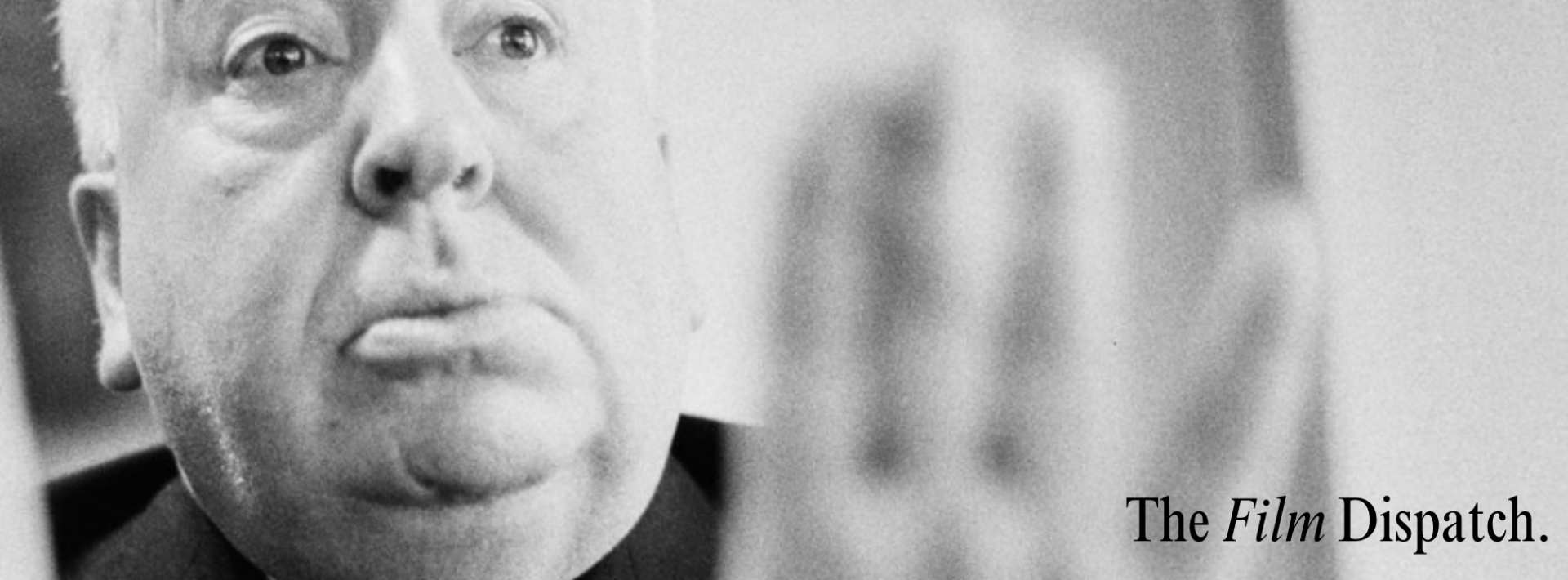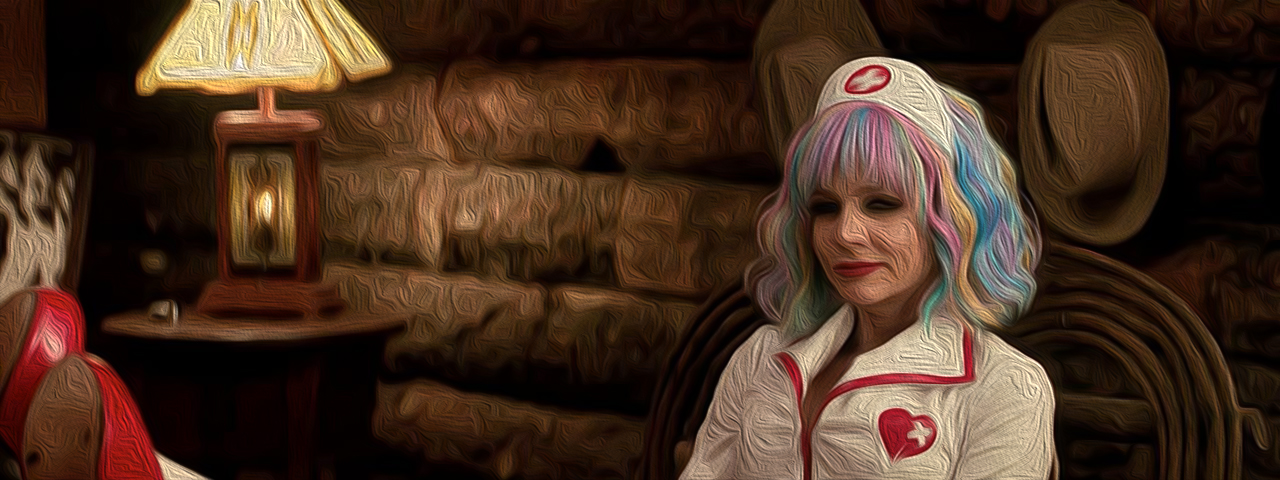
Emerald Fennell’s 2020 film, Promising Young Woman, was marketed as “a #MeToo rape revenge thriller with bite”. However, if you’re expecting a cathartic rape revenge thriller with violent vigilante justice, Promising Young Woman will “bite” you. This film both subverts the conventional representation of trauma, causing a phoenix-like moment in its protagonist, and asks its audience to take a long, hard look in the mirror.
I
Promising Young Woman is about the secondary trauma of Cassandra Thomas (Carey Mulligan), whose closest friend since childhood, Nina, was raped and then failed by the systems that should have protected her. The movie begins seven years after Nina was assaulted, bringing the audience into Cassie’s world in the wake of what happened to her friend.
The film illustrates the destructive nature of trauma both in Nina’s absence, and in Cassie’s inability to move beyond her grief. Years after Nina’s death, Cassie lives with her parents and works in a café. She is uninterested in living up to the potential of her initial success in med school. She dropped out to help Nina, and when she was unable to save her friend, Cassie got stuck. She spends her nights feigning drunkenness at bars, luring the “nice guys” that come to check on her to unsettling consequences when they try to take advantage of her in her inebriated state. However, Cassie is not empowered by these activities. She consistently suffers from the emotional burden of survivor’s guilt. Though she finds release in her revenge, the burden remains.
Cassie’s traumatic symptoms are exacerbated when her love interest Ryan (Bo Burnham) reveals that Nina’s rapist, Al (Christopher Lowell), is back in town. This spurs Cassie to devise a plan that will punish everyone who hurt Nina. Cassie’s plan concludes with Al but includes others who compounded Nina’s pain. Through behaviour socially sanctioned by rape culture—slut-shaming, victim-blaming, taking the promising young man’s word over the promising young woman’s—everyone on Cassie’s list perpetuated Nina’s suffering.
II
In her confrontations with attempted rapists, Cassie wields shame as her weapon. Rather than physically attacking these men, Cassie counters their assertions that they are “nice guys” with simple questions—like “What is my name?”—that they cannot answer. She forces them to face the reality that they are not, in fact, nice at all. And these men are, unsurprisingly, shaken by the revelation.
Fennell said, in an interview on Collider.com, “Would I rather somebody knocked on my door and punched me in the face or would I rather they came to my door and said, ‘I know you think you’re a good person, but you’re not. And if you let me come in, I’m going to show you how you’re not.’? It’s all of our worst nightmares. None of us could bear that.”
In her revenge against those who directly hurt Nina, Cassie continues to confront people with their complicities and hypocrisies. She invites Madison (Alison Brie), a former friend from med school, to catch up then confronts her about her dismissal of Nina after the assault. Instead of showing remorse for not believing Nina, Madison repeats the slut-shaming discourse she originally used to rationalize her skepticism. Madison victim-blames Nina because it is less frightening to believe that Nina made herself vulnerable than that all women are vulnerable. Madison perpetuates the very system that puts her in danger.
Still, the film doesn’t suggest Cassie’s behaviour is healthy. It frequently shows the toll that seeking revenge takes on her. After one confrontation, Cassie stops her car at an intersection and completely dissociates, until someone yells at her for inconveniencing his driving. After she smashes his brake lights and windshield, he peels away and Cassie is left standing there, shattered.
For Fennell, Cassie’s woundedness was intentional: “So much about this movie was being honest about what are we saying when [we tell women there is this] very simple, linear, cathartic journey. It’s not like that.” Revenge may be cathartic in fiction, but Promising Young Woman depicts a more realistic, if heart-breaking, scenario.
Cassie is clever and sardonic, and we want the best for her. But the reality of this story is that Cassie is broken by what happened to Nina. Cassie is filled with righteous rage, and terrified of herself as much as anything.
III
What Cassie actually wants—needs—is a witness from within the system that destroyed Nina. She needs people, especially those involved in what happened to Nina, to see. To fully comprehend this tragedy: the loss of this promising young woman. Cassie is trapped by her trauma. It is forever right now and all there is for her. She needs to tell her story, to be believed, to rewrite what happened to the friend she couldn’t save.
The only time Cassie forgives someone makes it evident that her goal is for Nina’s pain (and hers) to be acknowledged, as much as for the perpetrators to be punished. This comes in the unlikely form of Jordan (Alfred Molina), a former defense attorney who spent years protecting “promising young men” from consequences. “I got a bonus for every settlement out of court. I got another bonus for every charge dropped,” he tells Cassie. Jordon not only remembers Nina, but he is haunted by his behaviour. He tells Cassie he quit his job, and can’t sleep because he cannot forgive himself for the things he did to discredit assault victims: “I’ll never forgive myself. I want you to know that. I’ll never forgive myself for any of this.”
Cassie shakily replies, “I forgive you.” Then she calls off whatever punishment she had planned for Jordan. Because, again, what Cassie needs is for people to see.
IV
After forgiving Jordan, Cassie’s story shifts. She tries to move on with her life and falls in love with Ryan. Which makes Madison resurfacing with a forgotten video of Nina’s assault even more eviscerating.
Because Ryan was at the party where Al raped Nina, and he didn’t stop it. He apparently doesn’t even remember he was there. This man we have grown to trust along with Cassie, refuses to bear witness to the event that destroyed not one, but two lives. He repeats “You have to forgive me”. When Cassie refuses, he calls her a failure. When she goes missing after Al’s bachelor party, Ryan withholds information from the police. In refusing to bear witness, Ryan tries to absolve himself. Instead, he reveals that he values his image as a “good guy” more than Cassie’s life.
With all hope destroyed, Cassie crashes Al’s bachelor party. She handcuffs him to a bed and tells him her name is Nina Fisher. Though Al clearly remembers Nina, no matter how Cassie prompts him, he refuses to admit what he did. He refuses to bear witness to his destruction of Nina. The more Cassie describes how her friend faded away after what Al did, the more we anticipate finally getting that “simple, linear, cathartic” violent revenge.
Instead, Fennell subverts audience expectations with one final “bite”. Al breaks free from the handcuffs and physically overpowers Cassie. Fennell stated that she “didn’t believe that a woman of Cassie’s size would be able to physically overpower a very strong man”. For the sake of narrative honesty, Fennell gave us the only ending that she felt she could.
In the final moments of the film, with the chime of Cassie’s pre-scheduled texts to Ryan— “You didn’t think that was the end did you?”—does Fennell rescue her audience from utter despair. As we’re shown that Cassie sent Jordan the video, and police interrupt Al’s wedding, we dare to hope for the tiniest sweetness to this bitter ending.
V
The ending asks us to believe that maybe this time justice will be served. Cassie’s texts give us hope for justice.
Unfortunately, in reality, often those most vulnerable cannot trust the system to protect them. The discourse of “promising young men” allows rapists to escape with minimal consequences, if cases are pursued at all. Considering this, vigilante justice may seem appealing. But it is self-destructive and unrealistic, as Cassie’s story makes evident.
Promising Young Woman film asks audiences to reflect on how normalised behaviours perpetuate rape culture. Who are we protecting when we do this? Why are we protecting them? Is it because we want to keep believing we could never have been friends with or admired someone who could do something so horrible? Is maintaining that image of them and ourselves as “good” worth it?
Promising Young Woman reminds us – the “innocent” bystanders – of our personal responsibility. To listen and believe. To help dismantle rape culture. We need to interrogate our internalized misogyny. We need to believe victims.
Our society is so entrenched in rape culture that dismantling these systems may seem impossible. But Promising Young Woman asks us: how dare we not try?
The Edinburgh Rape Crisis Centre can be contacted at support@ercc.scot. Their website is ercc.scot, and their helpline (08088 01 03 02) operates from 6pm to midnight.
Written by Erin Marty for The Film Dispatch.

